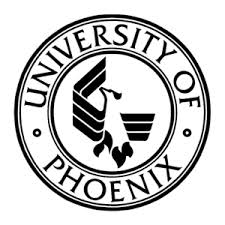America is in an educational free-fall and right now, it appears that no one is rescuing the group falling fastest; the students. No where is this more clearly seen than with the University of Phoenix and their declining enrollment. The choices for students are limited and none of them are very palatable. For lower income families, student loans are available, but student debt is crippling  and worse, the job prospects at the end of the road are meager at best. It appears that Higher Education is in a bit of a mess.
and worse, the job prospects at the end of the road are meager at best. It appears that Higher Education is in a bit of a mess.
Middle class students – and their families are being crushed. It is one thing for the government to talk about loan forgiveness for those who have borrowed from government programs, but middle class families struggling to keep their children in college, cannot find relief anywhere.
Then perhaps the most crushed group of all are those students who fell for the numerous online courses run by for profit corporations. The largest of the for-profit behemoths, The University of Phoenix (owned by the publicly-traded Apollo Education Group), has fallen sharply out of favor as students realize what education experts have been saying for years; the degrees are of poor quality – at best, and expensive. In fact, The University of Phoenix has lost half its students and the stock is dropping like a rock.
According to CNN Money (March 25, 2015):
“For-profit colleges only enroll roughly 12% of the country’s students, but students at for-profit colleges accounted for about half of student loan defaults in 2013, according to federal data.” In 2012, the University of Phoenix closed down 115 of its “campuses.”
To me, the for-profit system of education is endemic of a kind of educational desperation where students, not wanting the burden of too many courses or loan debt are attempting to achieve some kind of balance within their lives. I feel their pain; more so, I feel their frustration when they try to shop that degree and turn it into a high paying job. Many of the for-profit “Universities” have failed after just a few relatively short years and part of the problem is that the diplomas (if the students stay that long) are almost without value. It is not the same as “being there.”
It is easy for those of us who went through the educational process many years ago to tell students and their parents to dig in, and roll up their sleeves. However, according to federal data college tuitions have risen nearly 550 percent since 1985; in case no one has noticed, the economy has been struggling and sputtering along for quite some time. How are people caught in the middle supposed to maintain in this state of inflation? The truth is, they can’t.
The need for an ethical examination of education
There have been numerous conversations centered on the issue of free or very low cost community college tuition programs. These talks inevitably rattle around the halls of Congress and invariably are deemed too pie-in-the-sky expensive or impractical or difficult to administer. The part of this conversation that bothers me is that the same bureaucracy that tells us a community college program can’t work, is the very same group of lawmakers who oversee billions of dollars’ worth of federal programs with massive amounts of waste.
Week after week we blog about governmental waste and corruption. Within the past month alone, I wrote about government workers who had unpaid federal income taxes for the past year amounting to more than $3.5 billion! I have friends within the many government agencies who have confided about failed programs within their “alphabet soup” of organizations. I regularly speak in front of local, regional and state groups about good ethics, and at virtually every meeting someone confides how much taxpayer money is lost due to mis-management.
No one, least of all me, is suggesting that free or very low cost tuition should equal a free-ride. If anything, a community college program can be very rigorous with high expectations and very high standards. Nevertheless, we must create a playing field where one of our most valuable assets, the education of young minds is allowed to flourish.
If the economy is stalled, the best thing to get it un-stalled, is to nurture minds into creating new businesses, technologies and institutions. That will not happen unless we examine how our local, regional, state and federal bureaucracies are spending the money we taxpayers are giving them. If we are able as a country to examine “government waste” and to enable its diversion into absorbing educational costs, we will all be the richer.
To make this happen will require an honest and open dialog, and a deep examination of government ethics.


